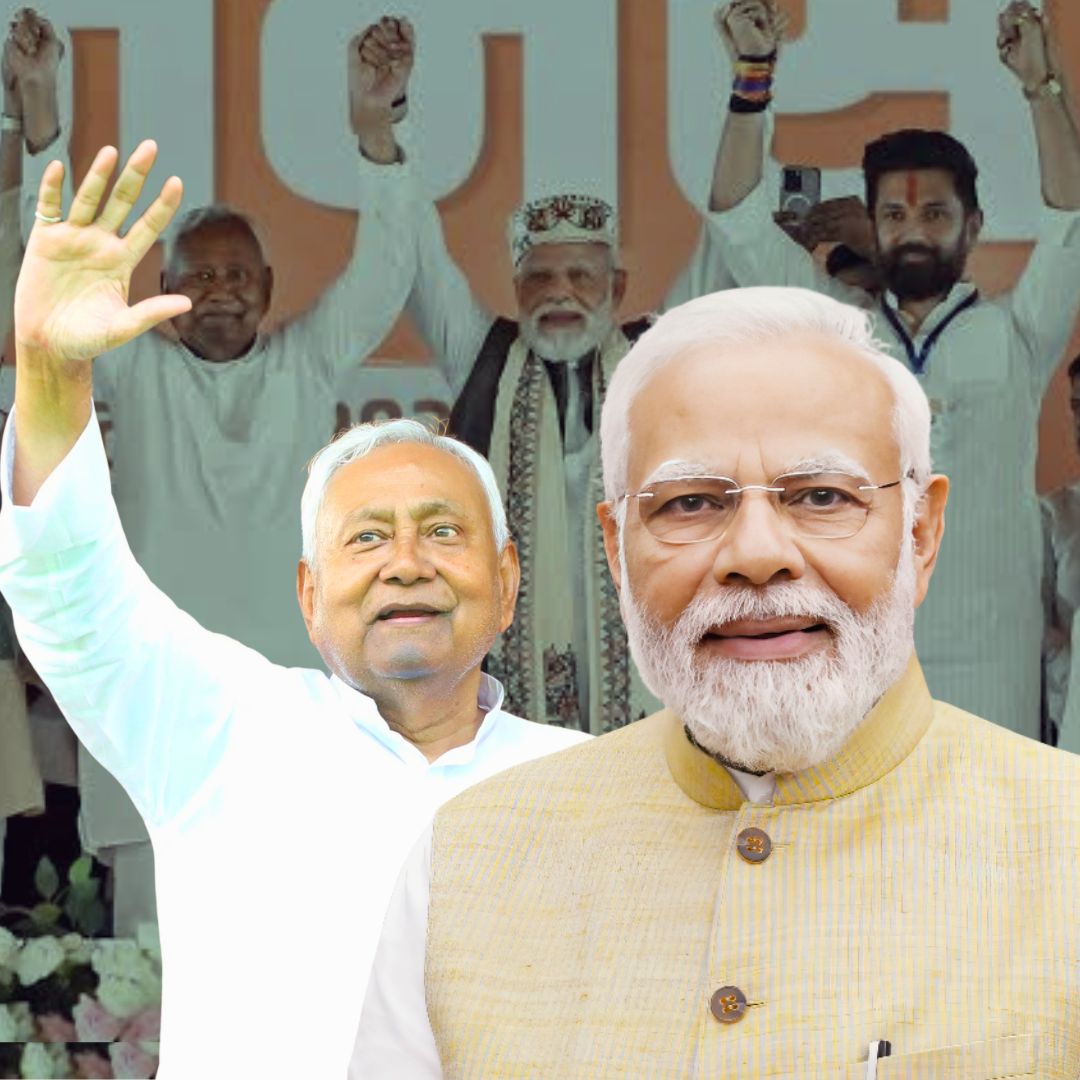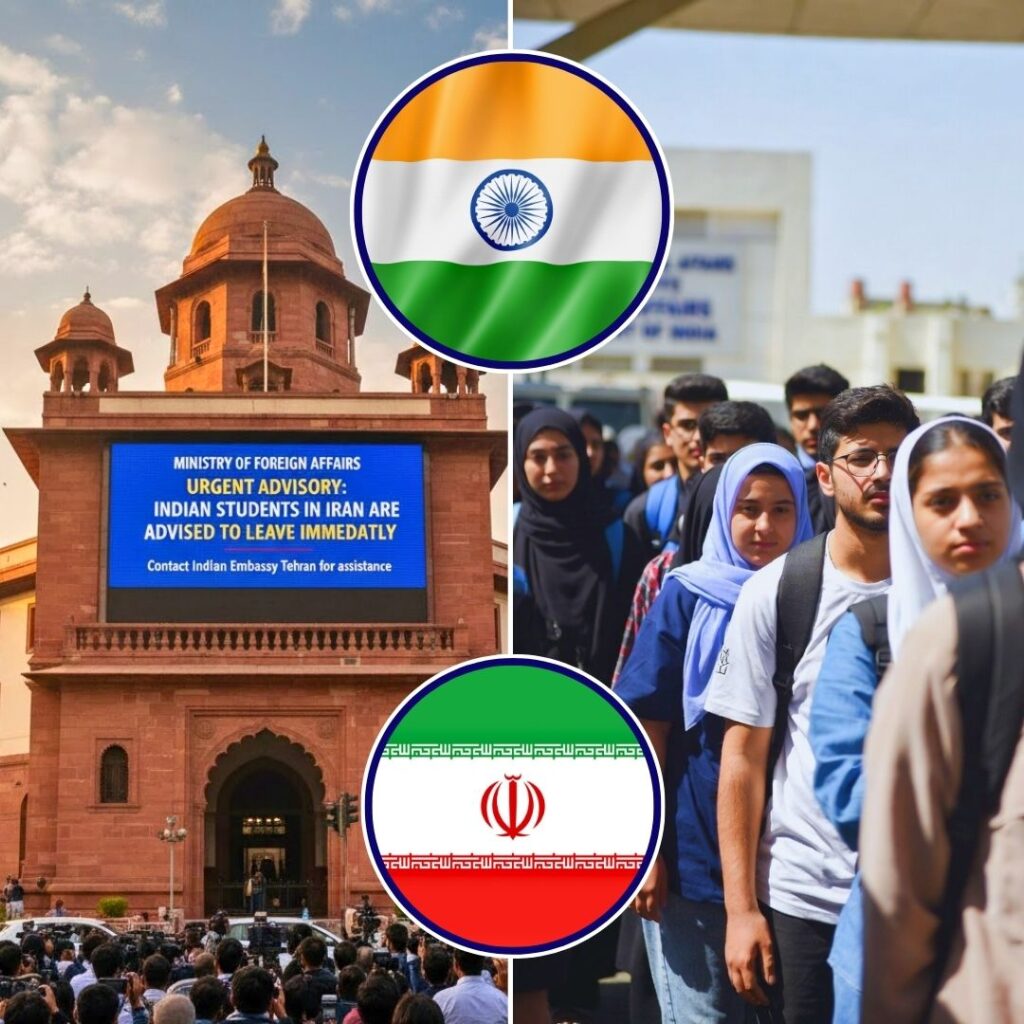The 2025 assembly election in Bihar has tilted decisively in favour of the National Democratic Alliance (NDA), as counting trends show the coalition comfortably ahead of the opposition and moving toward what appears to be a clear and commanding victory.
By late morning on Friday, the NDA had already crossed the majority mark of 122 seats in the 243-seat assembly and was trending toward well over 180 seats. Early figures placed the BJP around the mid-80s and JD(U) in the mid-70s, with smaller allies adding to the tally.
On the opposition side, the Mahagathbandhan was trailing significantly, with leads in the range of roughly 40–50 seats, well below expectations.
Prime Minister Narendra Modi responded to the NDA’s sweeping advantage by calling it a mandate for good governance, development, public welfare, and social justice. He thanked the people of Bihar for giving the NDA a historic mandate and said the result strengthens the alliance’s resolve to work toward a more prosperous future for the state.

Seat Count Update
Seat Count Update
- Early Election Commission trends showed the NDA well ahead, with the BJP emerging as the largest party in the coalition.
- JD(U) followed closely, and the alliance’s smaller partners also contributed to the lead.
- The RJD, while still the largest opposition party, was lagging far behind with significantly fewer leads.
- Congress and the Left struggled to make an impact, and new entrants like the Jan Suraaj Party remained largely unsuccessful.
- Voter turnout reached a historic high, with more than two-thirds of eligible voters casting their ballots.
Opposition Faces Near-Wipeout
The Mahagathbandhan’s campaign, anchored by RJD leader Tejashwi Yadav’s rallies, job promises, and youth-focused messaging, failed to translate into significant seat gains. Congress remained marginal, and coordination issues within the opposition alliance were evident.
Emerging players such as Prashant Kishor’s Jan Suraaj Party were unable to break through in a highly competitive electoral landscape.

Who Will Be Chief Minister of Bihar?
With the NDA poised for victory, the spotlight turns to the question: Who will claim the top office in Patna? Given the strong positioning of both the BJP and JD(U) within the alliance, it is widely expected that Nitish Kumar will return for another term as Chief Minister.
The trends indicate his party not only regained footing but surged ahead in number of leads, giving him a strong claim. Thus even as the BJP consolidates, the path seems set for Nitish to continue in the top role, albeit in a perhaps more BJP-formalised coalition.

Can BJP Form Government Without Nitish Kumar?
Although the BJP has made significant gains and appears to be the single largest party within the alliance, forming a government without Nitish Kumar remains unlikely.
Nitish’s governance record, social coalition, and administrative experience provide stability the BJP alone may find difficult to replicate in Bihar’s complex political landscape. For now, the alliance seems firmly positioned to continue with Nitish at the helm, combining BJP’s organisational reach with JD(U)’s social base.
The Nitish Kumar Factor: A Look Back
Nitish Kumar remains one of India’s longest-serving and most influential Chief Ministers. His political journey—from a young socialist shaped by the Jayaprakash Narayan movement to the central figure of modern Bihar—has defined the state’s governance for over two decades.
Known for his administrative focus, shifting alliances, and resilience, Nitish once again appears to have successfully steered his party through anti-incumbency and maintained the NDA’s credibility among voters.
The Broader Lens: What This Means
The Bihar election results highlight the dynamism of Indian democracy, reflecting shifting political allegiances and aspirations of a young and demanding electorate. The NDA’s strong mandate underscores the emphasis voters have placed on governance delivery, welfare schemes, and development.
Even as the opposition faces a setback, its presence remains important in shaping political debate, advocating for social justice, and ensuring democratic accountability.
As Bihar enters a new political chapter, constructive dialogue and inclusive governance will be crucial in turning voter expectations into tangible progress.













